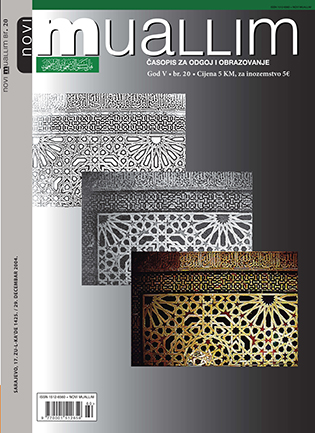THE ASSERTIVENESS TRAINING IN WORKS OF THE EARLY MUSLIM SCHOLARS
DOI:
https://doi.org/10.26340/muallim.v5i20.1214Abstract
As a sign of the attention Islam pays to, not only psychological but also spiritual health, the early Muslim scholars tackled the issue of submissiveness and aggressiveness. The results were the books, and sometimes even real psychotherapeutical manuals, in which, these great scholars theoretically developed, from the Islamic perspective, many of the concepts and techniques of the modern assertiveness training. In the light of the Islamic vision of human nature and using different behavioral and cognitive interventions, they paid special attention to healing the ailing human soul, which, according to them, was the main cause of an assertive pathology. Promoting these, in the modern textbooks regularly overlooked achievements, calls upon the modern Muslim psychologists to carefully question, in the light of the original Islamic vision of man, not only the assertiveness training, but also all other secular psychotherapeutic theories and procedures. The Western psychologists could, in return, seriously consider spiritualizing their vision of men for the sake of improving psychotherapy, and so embark upon an irreversible and long awaited process of de-secularization of the psychotherapy in the West.
Downloads
Published
How to Cite
Issue
Section
License
Naknada:
a. Časopis ne naplaćuje naknadu za obradu članaka (APC) i naknadu za podnošenje članaka.
Autori koji objavljuju u ovom časopisu pristaju na sljedeće uvijete:
- Autori zadržavaju autorska prava i pružaju časopisu pravo prvog objavljivanja, pri čemu će rad jednu godinu po objavljivanju biti podložan licenci Creative Commons imenovanje koja omogućuje drugima da dijele rad uz uvijet navođenja autorstva i izvornog objavljivanja u ovom časopisu.
- Autori mogu izraditi zasebne, ugovorne aranžmane za ne-ekskluzivnu distribuciju rada objavljenog u časopisu (npr. postavljanje u institucionalni repozitorij ili objavljivanje u knjizi), uz navođenje da je rad izvorno objavljen u ovom časopisu.


